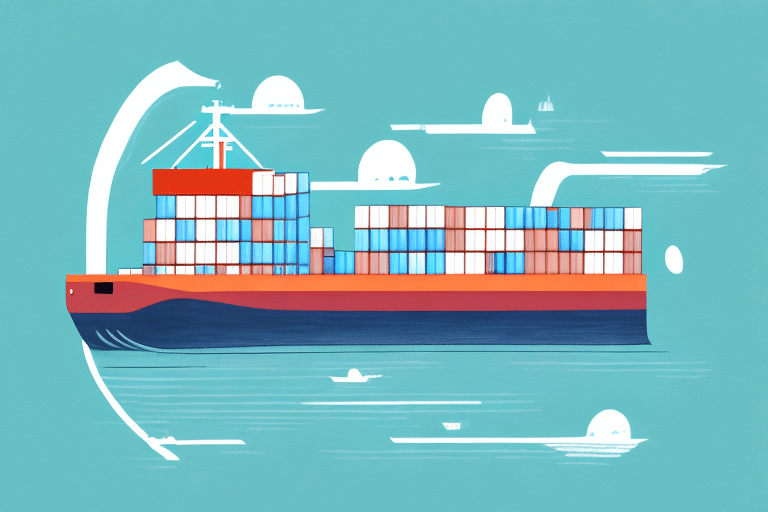Understanding Total Landed Cost: Definition and Importance
Total landed cost represents the comprehensive sum of all expenses incurred to bring a product to your business, ready for sale. This encompasses the product cost, transportation fees, customs duties, tariffs, insurance, taxes, and any additional expenses. Grasping the total landed cost is essential for making informed pricing decisions, optimizing inventory management, identifying cost-saving opportunities, and ultimately enhancing your profitability.
Key Components of Total Landed Cost
Product Costs
The initial price of the product is just the beginning. It's vital to include the costs of raw materials, labor, and overhead expenses associated with production.
Transportation and Shipping
Freight and shipping expenses vary based on the supplier's location, distance traveled, and the chosen mode of transportation. Efficient logistics planning can significantly reduce these costs.
Customs Duties and Tariffs
Importing goods involves various customs duties and tariffs, which differ by product type and country of origin. Staying updated with current regulations is crucial for accurate cost calculation.
Insurance and Risk Management
Insurance costs protect against potential damages or losses during transportation and storage. Evaluating the risks and securing appropriate coverage can prevent unexpected expenses.
Storage and Handling
Warehousing fees, inventory management costs, and handling charges contribute to the total landed cost. Efficient inventory practices can help mitigate these expenses.
Strategies to Accurately Calculate Total Landed Cost
Comprehensive Cost Tracking
Utilize advanced supply chain management software to monitor and record all associated costs meticulously.
Regular Cost Reviews
Periodically reassess your cost structures to account for changes in raw material prices, labor costs, and other variables.
Leverage Economies of Scale
Increasing production volume can reduce the cost per unit, but it's essential to balance this with potential risks like supply chain disruptions.
Hidden Costs in Total Landed Cost Calculation
Unexpected Fees
Be aware of unforeseen charges such as local drayage fees, special handling fees, and additional customs clearance costs.
Compliance and Regulatory Costs
Meeting industry-specific regulations may require certifications, testing, and documentation, leading to extra expenses.
Delays and Penalties
Delays in transportation or customs can incur demurrage or detention charges. Implementing contingency plans can help minimize these impacts.
The Role of Tariffs and Taxes in Total Landed Cost
Impact on Pricing and Demand
Tariffs and taxes directly influence product pricing, which can affect consumer demand and sales volume. It's essential to factor these into your pricing strategy.
Mitigation Strategies
Consider alternative sourcing from countries with lower tariffs or utilize free trade agreements to reduce customs duties. Consulting with a customs broker can also provide strategic advantages.
Industry-Specific Considerations for Total Landed Cost
Food Industry
Includes costs for refrigerated transportation and storage, ensuring product freshness and compliance with health regulations.
Fashion Industry
Requires consideration of expedited shipping for seasonal trends and costs related to custom duties on apparel.
Electronics Industry
Involves specialized packaging to protect delicate components and adherence to strict regulatory standards.
Tools and Resources for Accurate Cost Calculation
Supply Chain Management Software
Solutions like SAP SCM or Oracle SCM offer advanced features for tracking and managing landed costs.
Government and Trade Resources
Access resources from Trade.gov for the latest tariff and tax information.
Industry Associations
Organizations such as the APICS provide benchmarking data and industry-specific cost insights.
Case Studies: Effective Total Landed Cost Management
Furniture Company Success
A furniture company reduced its total landed costs by 20% by consolidating shipments and partnering with a logistics expert to enhance transportation efficiency.
Clothing Retailer Optimization
A clothing retailer achieved a 15% reduction in total landed costs by implementing a just-in-time inventory system and improving supplier collaboration to shorten lead times.
Communicating Total Landed Cost to Stakeholders
Tailored Reporting
Customize reports to highlight metrics relevant to different stakeholders, such as cost savings for CFOs and transportation costs for logistics teams.
Visual Aids and Transparency
Incorporate graphs and charts to illustrate cost breakdowns and provide clear explanations of the methodologies used in your analysis.
Future Trends in Total Landed Cost Management
Technological Advancements
Emerging technologies like artificial intelligence and machine learning are revolutionizing cost tracking and optimization strategies.
Blockchain Integration
Blockchain technology offers enhanced transparency and security in supply chain transactions, further refining total landed cost management.
Staying ahead in total landed cost management involves continuous learning and adaptation to new tools and strategies. By leveraging modern technologies and maintaining thorough cost oversight, businesses can effectively navigate the complexities of global trade and supply chains.






















